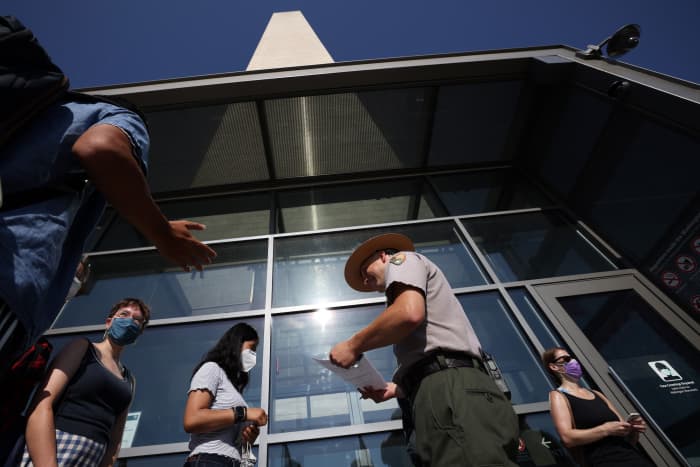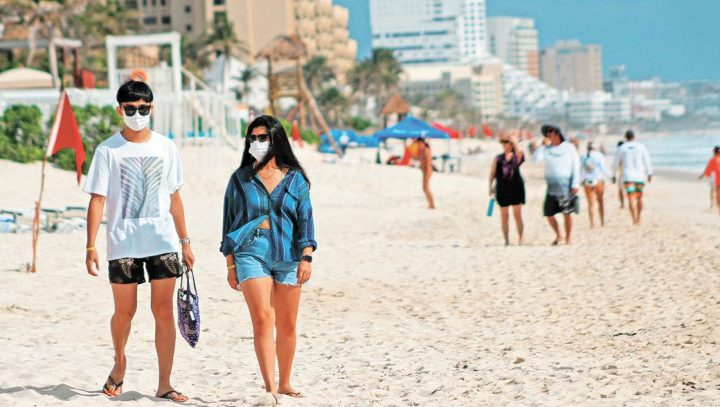By Sally French
The travel industry isn’t even close to being back to normal—much of what you’re used to is gone.
A lot has changed in the travel world since the pre-pandemic days of 2019. Even if it seems like your life is going back to normal — you’re back in the office, you’re going out sans mask and your social calendar is once again busy — the travel industry is far from normal.
Almost everything about travel has changed. You’ll likely need to book your trip in a different order, and adjust not just where you stay, but how you get there.
Here are the biggest changes to anticipate when planning travel in this COVID-19 era:
1. Book your rental car before your flight
Rental cars are in high demand as travel returns, but according to AutoSlash, a car rental site, supply is low due to a massive selloff of vehicles during the pandemic. Many travelers report getting deals on flights only to find that rental cars are sold out.
Before buying airfare, make sure rental cars are available at a tolerable price.
And it’s generally a good idea to reserve your rental car as soon as possible. Most rental car companies let you reserve in advance without making an upfront payment. Lock in a rate as soon as you can, as rental car prices will probably keep going up.
2. Use your points and miles now
Rewards devaluation has always been a concern among points and miles nerds. In 2020, United UAL, -0.03% raised prices on award flights, making points less valuable. Delta DAL, -0.88% also made similar devaluation changes in 2021. They weren’t the first and they won’t be the last.
For example, a flight that cost 100,000 miles in 2019 may cost you 110,000 miles in 2021. While you should probably save and invest some of your money, most travel experts agree that saving airline miles and hotel points is a bad idea, as they generally lose value over time.
3. Anticipate the disappearance of amenities and services you’re used to
Most hotels ditched their breakfast buffets at the height of the pandemic, and many will never return. Other amenities and services have also been modified or cut completely. At some hotels, housekeeping only happens upon request — fail to take that extra step and no one will come to make your bed or empty your trash.
When it comes to air travel, many carriers have cut back on in-flight food and beverage services. First- and business-class travelers might experience even more noticeable service reductions. For example, JetBlue JBLU, -0.72% Mint, the airline’s first-class airfare, eliminated its hot towel service and espresso drink offerings.
4. Be open to alternative lodging and transportation modes
If those reduced service offerings have rubbed you the wrong way, or perhaps you’re just not ready to step into a crowded airport or hotel, consider alternative travel modes. RV road trips are hot this year, and websites like peer-to-peer rental marketplace Outdoorsy make it relatively easy to rent an RV.
Consider vacation rentals if you’re traveling with a larger group or looking to avoid hotel crowds. And if rental cars are sold out, look to car rental alternatives like Turo, Getaround, or even limos to make sure you still have a car.
5. Consider less-visited ‘second cities’
It seems like everyone is trying to make up for lost vacations in 2020, so many domestic tourist destinations are more crowded than ever. Head off the beaten path to a “second city,” which is a lesser-known destination near a busy one. You’ll not only avoid crowds, but your travels may also help support a city that is slowly recovering from the pandemic.

6. Understand the pet policies
Between quarantine kitties and pandemic puppies, it seems like everyone adopted a pet last year. If that’s you, make sure that you’re aware of the pet policies before bringing along furry travel companions. Staying in a hotel with a pet can be tricky; many hotels charge extra pet fees, limit the size of pets that can be in the room or have strict rules around unattended pets.
Further, many airlines also charge pricey fees to travel with pets, and they also tend to have strict size rules.
7. Accept that international travel includes challenges — even if you’re vaccinated
While most U.S. cities are open for travelers with few restrictions, the same can’t be said for international travel. Even if you’re vaccinated, some countries will let you in only if you agree to a quarantine, while others require a negative COVID-19 test to get in.
And remember, you’ll need a negative COVID-19 test to get back into the U.S.
If you’re planning travel soon
Travel has changed. Not all of the changes are bad; in fact, there are many changes that we’d like to see stay. Whether it’s improved airline cleanliness standards or the proliferation of outdoor dining and closed streets, there’s a lot to like about our collective travel future.
But a lot of what you’re used to is gone. Don’t be upset when the hotel housekeeping staff doesn’t visit daily, the breakfast buffet no longer exists or the rental cars are already sold out. You may find that some changes — a brown-bag breakfast so you can hit the road earlier, or having a driver versus renting a car — are more enjoyable anyway.
Source: Market Watch



